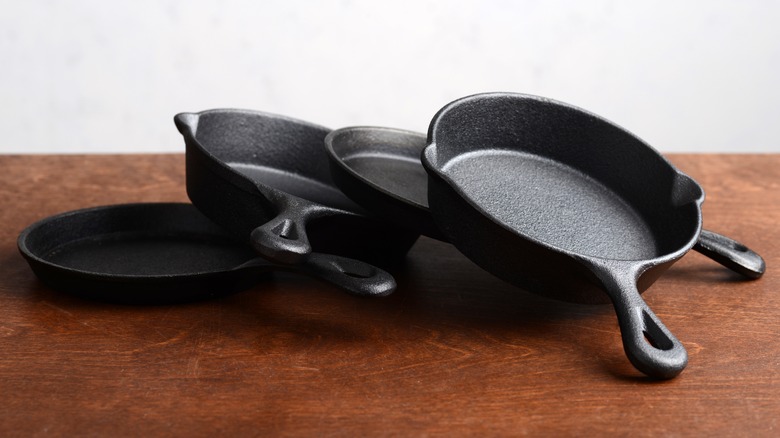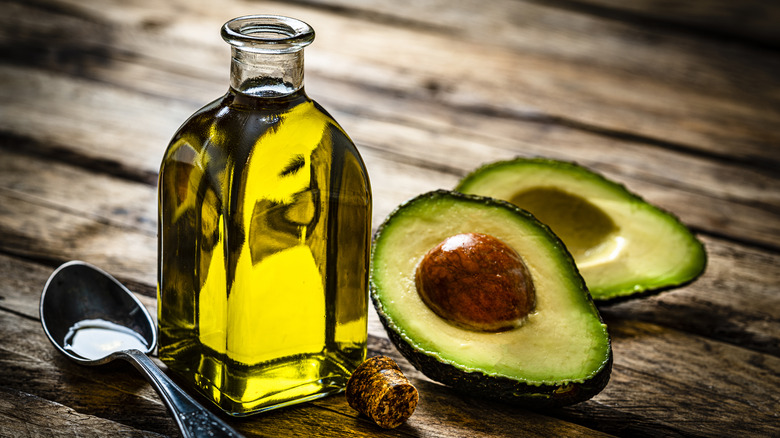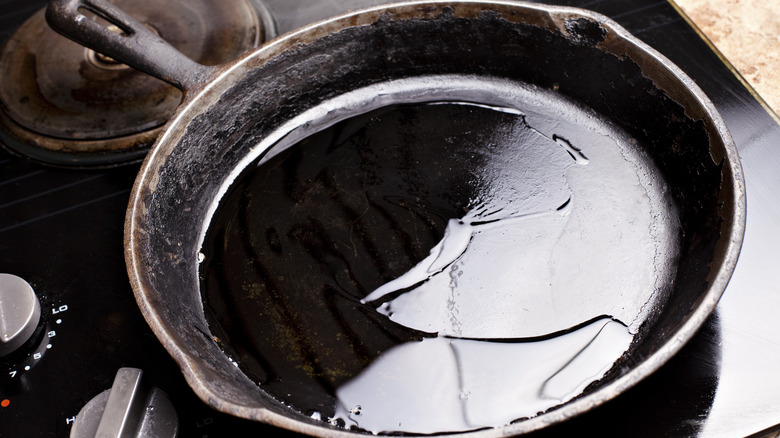The Best Oil For Seasoning A Cast Iron Skillet
When cooking with a cast-iron skillet, you can tell pretty quickly whether it's well-seasoned or not. It'll either be as slick as a nonstick pan, or anything you put on it will get stuck no matter how much oil you coat it with beforehand. For cast iron to perform at its best, seasoning it is crucial, especially because the finish can get worn down due to regular use. Fortunately, seasoning a cast-iron skillet isn't a complicated task. Any cooking oil will technically be able to season cast iron, but avocado oil creates the most durable finish.
The process involves coating the pan with a layer of oil, then heat-treating it in the oven for about an hour. Depending on how patchy or unseasoned the surface starts off as, you'll have to repeat these steps as necessary.
Though you might assume that the results are influenced primarily by how many times you oil, bake, and repeat, the truth is that the type of oil you use plays more of a role in the outcome.
Why you should season your cast-iron skillet with avocado oil
Repeatedly oiling and heating a cast-iron skillet gives it a nonstick surface due to a chemical process called polymerization. In the context of seasoning a cast-iron skillet, polymerization occurs when the oil is exposed to high temperatures, subsequently breaks down, and forms a bond with the metal. This process is more successful if the oil you use is high in unsaturated fat. There are many vegetable oils that are rich in both mono and polyunsaturated fats, but avocado oil outperforms others due to its higher smoke point.
The smoke point of refined or regular avocado oil falls between 500 and 520 degrees Fahrenheit. By contrast, grapeseed oil, a more commonly recommended seasoning oil, is 420 degrees Fahrenheit. That's high, but it's still significantly lower than the smoke point of unrefined or extra virgin avocado oil, which is 482 degrees.
A higher smoke point causes polymerization to occur at a much slower rate, which is precisely what yields a more solid nonstick coating. As a result, your cast iron will stay seasoned for far longer.
When not to use avocado oil to season a cast-iron skillet
There's only one circumstance under which you shouldn't use avocado oil to season a cast-iron skillet, and that's if it's already been used.
Though you can save and reuse frying oil — including avocado oil — multiple times, it isn't the best idea to use it to season a cast-iron skillet, because the properties change too much. Every time you heat oil, its smoke point lowers, and that means used avocado oil isn't as effective at seasoning.
The other issue with used oil is that it often contains small traces of leftover food, no matter how well you filter it out. This isn't ideal for seasoning, because cast iron will be blasted with 450 to 500 degree heat, and any food residue will get burnt into the pan in the process. If your avocado oil is too dirty, you could easily end up with a gritty, uneven layer of seasoning. It's best, therefore, to stick to clean, unused avocado oil.


